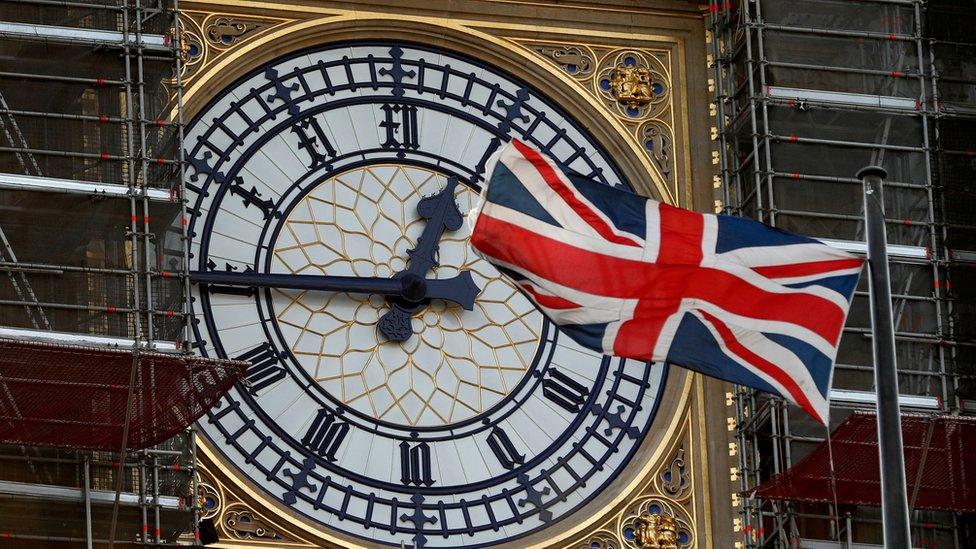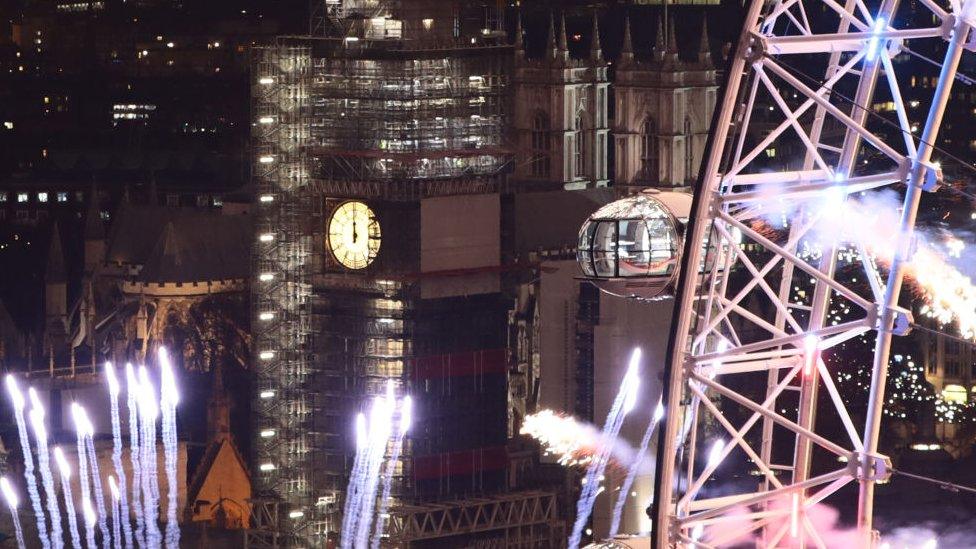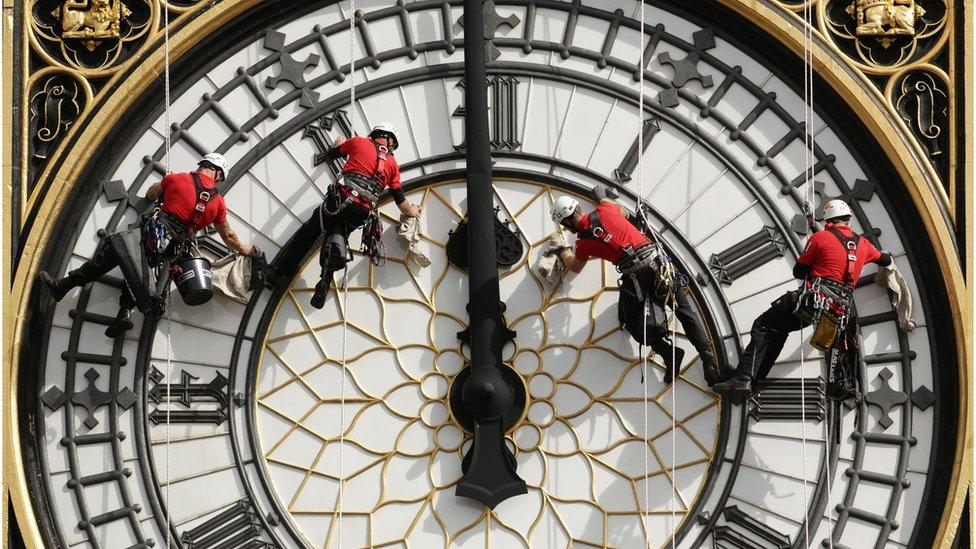Big Ben: Would Brexit bongs cost £500,000?
- Published

It would cost £500,000 for Big Ben to strike at the moment of Brexit, according to the prime minister.
Boris Johnson said Big Ben's clapper had been removed during the current restoration project and temporarily replacing it would come at a considerable cost.
The idea for the bells to ring out at 23:00 GMT on 31 January - the time and date the UK is due to officially leave the EU (it'll be midnight in Brussels) - was first floated by pro-Brexit MPs.
But at £500,000, the cost of marking Brexit in this way would be just over £45,000 per bong - assuming the bell strikes 11 times.
Why would it cost so much?
The House of Commons Commission, which is responsible for maintenance in Parliament, estimates the cost of sounding Big Ben on Brexit day is between £320,000 and £500,000.
Its estimate is made up of two separate costs:
Bringing back the bonging mechanism and installing a temporary floor - £120,000
The cost of delaying the conservation work - up to £400,000 (based on an estimate of £100,000 a week)
The commission says the floor in the belfry has been removed and there would be a significant cost to put in and then remove a temporary floor.
As well as the floor, the £120,000 figure also includes the cost of installing and dismantling the temporary mechanism (an electric hammer) to sound the bell.
Delaying the restoration work already taking place to enable the bongs would also add £100,000 a week to the bill.
As such, the commission concludes that the cost is not justified - although it says it will respond to any decision MPs make.
What about New Year's Eve?
Despite the repair works, Big Ben does still occasionally bong - as recently as New Year's Eve.
When the restoration work started in 2017, it was agreed that Big Ben should sound for Remembrance Sunday, Armistice Day and New Year's Eve.
The House of Commons says this arrangement allowed the project team to plan its works around the dates well in advance.
The cost of striking Big Ben on Remembrance Sunday and New Year's Eve in 2019 was £14,200 each, according to a recent Parliamentary Question, external.
Sir Paul Beresford, who responded to the question, said the strikes on these dates had been coordinated around the renovation work in order keep costs down and to prevent delay.
He added: "If the project team are required to strike the bell with less notice, the costs would substantially increase due to the unexpected impact on the project schedule."

Big Ben most recently chimed on New Year's Eve
According to the Commons, it was decided that the belfry floor work would begin on 2 January in order not to interfere with New Year's Eve.
The reconstruction work on the floor is likely to be significant, involving resurfacing and waterproofing.
The Commons has ruled out getting this done by 31 January, which is why a temporary floor would need to be installed and then removed.

Big Ben basics

The Great Bell forms part of the Great Clock in the Elizabeth Tower - commonly known as Big Ben
It weighs 13.7 tonnes and the Elizabeth Tower stands 96m (315ft) tall
Every hour it strikes an E note, and every 15 minutes four "quarter bells" chime
To stop the chimes, the striking hammers will be locked until 2021

What repair works are being done?
Big Ben's chimes were silenced on 21 August 2017 to allow essential restoration work, lasting four years, to be carried out on the tower.
Parliamentary authorities said stopping the chimes would protect workers carrying out the repairs.
The total cost of the restoration project to the tower is estimated at £61m., external
According to Parliament, the last time significant work was carried out was in 1983-85 - that project involved cleaning and repair of the stone, painting and repairs to the roof.


